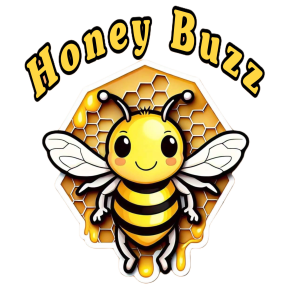Why Bees are so Important to the Environment
Why We Must Save the Bees: Understanding the Importance of Bee Conservation
In recent years, the plight of the honey bee has captured global attention. From environmentalists to farmers, there’s a growing recognition of the vital role bees play in our ecosystem. But why exactly is it so crucial to save the bees? In this article, we delve into the significance of bee conservation, the role of beekeepers, and the impact of beekeeping on bee populations.
The Buzz about Beekeeper
Beekeepers, also known as apiarists or apiologists, are individuals who engage in the practice of beekeeping. They are guardians of bee colonies, overseeing their care and management. Beekeepers play a pivotal role in not only harvesting honey but also in safeguarding bee populations.
In Australia, bee farming is a significant industry, with beekeepers managing millions of beehives across the country. These dedicated individuals work tirelessly to ensure the health and well-being of their bees, contributing to the pollination of crops and the production of honey.
Beekeeping for Beginners: A Path to Conservation
One might wonder, does beekeeping truly help the bee population? The answer is a resounding yes. Beekeeping provides a safe haven for bees, away from the threats they face in the wild. By establishing managed hives, beekeepers help increase bee populations while also ensuring the sustainability of bee colonies.
Moreover, beekeeping serves as a valuable educational tool. Beginners in beekeeping gain a deeper understanding of bee behavior, ecology, and the challenges bees encounter. This knowledge empowers individuals to become stewards of bee conservation, advocating for policies and practices that protect these vital pollinators.
The Environmental Importance of Bees
Bees are often hailed as nature’s most efficient pollinators, and for good reason. They play a critical role in pollinating a vast array of flowering plants, including many fruits, vegetables, and nuts. In fact, it’s estimated that one-third of the world’s food supply depends on pollinators like bees.
Beyond agriculture, bees contribute to the biodiversity of ecosystems. They facilitate the reproduction of flowering plants, which in turn provide habitat and sustenance for countless other species. Without bees, the delicate balance of ecosystems would be disrupted, leading to cascading effects on wildlife and the environment.
Furthermore, bees are indicators of environmental health. Their decline serves as a warning sign of broader ecological imbalances, including habitat loss, pesticide use, and climate change. By prioritizing bee conservation, we can address these underlying issues and work towards a more sustainable future.
A Call to Action
Overall, saving the bees is not just a matter of preserving a single species—it’s about safeguarding the intricate web of life that sustains us all. Beekeepers, through their dedication and expertise, play a crucial role in this endeavor. By supporting bee farming initiatives, advocating for bee-friendly practices, and promoting beekeeping for beginners, we can all contribute to the conservation of these invaluable pollinators. Let us heed the call to save the bees and ensure a thriving ecosystem for generations to come.
